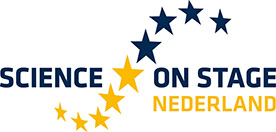ALBATROSS PROJECT
Conny Jasperse
Het Nieuwe Lyceum
Science
In this project students aim to create awareness about the problem of plastic waste in an innovative and agile way that prepares them for future challenges. After watching parts of the movie ‘Albatross’ students tackle the following question: ‘What measures could you take in your personal environment to make sure that more albatross chicks live to grow into an adult bird instead of dying premature?’ After they planned and presented their project, they got the chance to improve it with the help of environmental experts. The project is completed with a classroom discussion.
PROTEOMICS, MASS SPECTROMETRY APPLIED TO PROTEIN ANALYSIS
Andrea van Bruggen-van der Lugt
Willem van Oranje College
Biology
In this project students learn how to interpret mass spectra of fragmented peptides. In
the theoretical part students learn about proteomics, trypsin digestion and solving amino
acid sequences from peptide fragment spectra. In the practical part students purify normal
and sickle cell haemoglobin and digest them into peptides, which are analysed by mass
spectrometry. Finally, the students run the mass spectra data in Mascot to find out which is
the native or mutant version. The project ends in predicting mass spectra of the native and
mutant peptide fragments of the BRAF protein.
GROWING FOOD CROPS UNDER EXTREME CONDITIONS
Teacher Saskia van der Jagt
Institution Coornhert Gymnasium
Subjects Biology
The students look at the year 2050 and work around the issue of feeding 9 billion humans while the worldwide area for agriculture will have shrunk due to climate change. The main question is ‘How can we cultivate enough crops to feed those 9 billion people?’. A variety of tasks about cultivating crops under extreme circumstances is supported by lectures about the growth of plants, photosynthesis, modelling of ecosystems, natural cycles etc. In teams the students focus on sustainable solutions for cultivating crops in one specific ecosystem for example desert, mangrove or tropical rainforest. At the end each team pitches their solution on an ‘international conference’ with the topic of the world food problem.
BONI SCIENCE CENTER
Teacher Wilma Akkerman
Institution St. Bonifatiuscollege Utrecht
Subjects Science
In this project, students become acquainted with the science and technology behind everyday objects in an easily accessible way. For inspiration, we visited a science museum and the students encountered for example the science behind soap bubbles, the reason why a bridge does not collapse and the illusion of moving images. The students are challenged to ask questions about the ordinary things around them. Back in school, they investigate one chosen exhibit in detail and design a replica. The students are encouraged to use materials present in the classroom, or bring some material from home. These projects resulted in an open exhibition where parents and colleagues were invited to come, see and learn from the students.
BUILD A WINNING WINDCAR
Teachers Martijn Hoogland, Koen Verheggen
Institution Coornhert Gymnasium
Subjects Physics, chemistry
Chemistry and physics are the key subjects in understanding climate change and sustainability, so in this interdisciplinary project for students in 3rd grade we aim to introduce children to new energy solutions such as wind energy. In teams, the students work out their design goals and requirements for their wind car and make a technical drawing of their wind cart. After building their car, we had a competition with a big fan in the hall. The students report their project on Edmodo, where they can give and get peer-feedback on their project.
EMBODIED SIMULATIONS
Teacher Ingeborg van der Neut
Institution Ludgercollege
Subjects Biology
The challenge for biology teachers is to find ways to let students explore and experience
seemingly distant worlds of micro and macro biology. Embodied simulations is our solution
for this problem. We use everyday materials and make students part of the process. Imagine,
pupils going around in your classroom with Lego as glucose, working on the dissimilation
in order to get as many ATP (monopoly-money) as possible. Or a classroom acting out the
menstrual cycle, complete with an estrogen choir! Or pretending to be blood in the gill of
a fish, to find out that they do get almost 100% of the oxygen out of the water. Embodied
simulations help them understand and remember difficult processes in a fun and different
way.
FROM THE MOUTH TO TOILET
Teacher/Institution Mira Büllesbach/Grundschulverbund Bergheim-Mitte
Teacher/Institution Stephanie Cremer/Lessingschule ZiBB Freiburg
Teacher/Institution Bert Nagel/Toermalijn primary school Lelystad
Subjects Biology, chemistry, science, maths, technology, engineering, arts,
With this joint project we aim to improve childrens’ awareness about the secrets of their body. The project includes exploring the way of the food from the mouth to the toilet. Children from different countries explain to each other the different steps in English or using explanatory pictures. Through this inquiry based approach they will come up with questions and hypotheses and design their own experiments with more or less guidence from the teacher. All children can join the project and learn together because it is independent of cognition, culture or language of the children.
